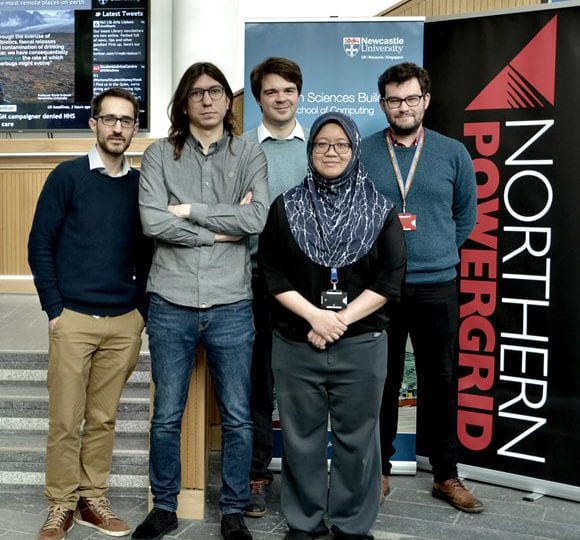Northern Powergrid partners with Newcastle University to improve electrical losses
Northern Powergrid has joined forces with Newcastle University to enhance its understanding of electrical losses from the region's power network.
14th March 2019 by Networks

Every day the electricity network, which powers 3.9 million homes and businesses, loses electricity, the difference between the electrical energy entering the network and the electrical energy exiting it, and whilst these losses are unavoidable they can be reduced by changing the way the network is designed and operated.
For Northern Powergrid establishing a baseline level of losses, how those losses will change in the future and then using that intelligence to identify areas for further improvement to ensure the electricity network operates as efficiently as possible is key.
Mark Nicholson, Northern Powergrid’s head of smart grid implementation, said: “Distributing electricity through our vast network inevitably leads to electrical losses and the future will bring new challenges and opportunities as we decarbonise with the penetration of renewable energy, low-carbon and smart technologies.
“We need to look at losses with a different perspective than we’ve traditionally used and working with the Electrical Power Systems Research Group at Newcastle University, who have developed deep expertise through working with us on a number of our previous innovation projects, will help us achieve this.”
Dr Haris Patsios, Newcastle University’s lead researcher for this project, added: “This is an exciting opportunity to work together with Northern Powergrid in order to broaden our understanding of network losses in a fast-changing energy landscape.
“As networks are evolving along with the role of operators, we need to ensure that our methods, tools, and approaches for measuring, calculating and eventually reducing losses fit within a whole systems approach.
“In this project we aim to create the necessary tools and know-how that will enable a more realistic representation of losses, and ultimately their integration into decision making in order to deliver more efficient, reliable, and cost-effective networks.”
The company has a commitment to Ofgem, the industry regulator, as part of the Losses Discretionary Reward, to deliver efficient losses.
The focus of the project will be delivering a detailed and flexible electrical distribution network losses model, building on the analysis of present and future network operating scenarios and incorporating system and consumer data, along with consideration of both ‘smart’ and traditional business-as-usual network operation and management techniques.
The two-year project, which started in April 2018, consists of a number of phases of analysis and model development. The first phase is now complete and the literature is now available for review on Northern Powergrid’s website.
The project is currently undertaking analysis of network data and developing the model framework. Further findings from the project are planned for release during 2019, including dissemination at the International Conference on Electricity Distribution (CIRED) conference this summer.
Comments
Login on register to comment
Related content

Power
The future for vegetation management
Why networks should focus on data not trees to overcome the costly challenges involved in vegetation management

Power
An unprecedented opportunity for change
Why short interruptions will matter in RIIO-ED2 and how to address them.

Power
Time for less talk and more action on decarbonisation
Core "oven-ready" solutions to decarbonising heat and transport exist today and should be implemented without delay, says WPD's future power networks expert.
Related supplier content

Power
Load patterns and lockdown: how Covid-19 is impacting electricity networks
Insights into dynamics on the low voltage network as the outbreak unfolds

Downloads
Protect electrical equipment from insulation failure
Insulation faults are a major cause leading to the eventual failure of electrical equipment. Partial discharge (PD) is a very reliable indicator of developing insulation faults. Regular PD testing allows users to detect and analyze PD activity

Heat
How E.ON. is helping the City of London become a zero emissions city
Discover Citigen. Deep in the heart of our bustling capital